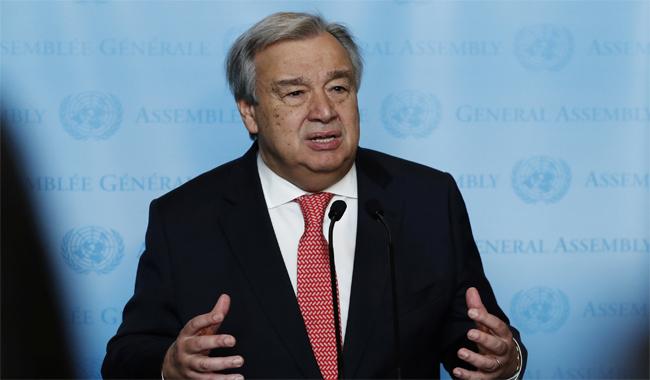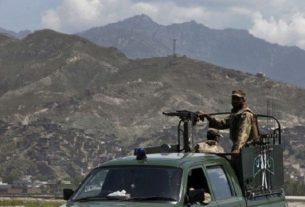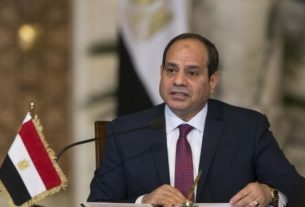United Nations Secretary-General Antonio Guterres on Monday said international envoys to Afghanistan hope for Taliban participation at their future meetings after the authorities snubbed an invitation to talks in Doha.
Guterres told a news conference that delegates had discussed “creating the conditions, in a next meeting, to have the presence of the de facto authorities of Afghanistan,” following their refusal to join the two-day conference which ended on Monday in the Gulf state.
The Taliban’s administration in Kabul has not been officially recognized by any other government since it took power and imposed a strict interpretation of Islam, with women subjected to laws characterised by the UN as “gender apartheid.” In the aftermath of the Taliban’s return to power in 2021, the international community has wrestled with its approach to the country’s new rulers.
The UN had extended an invitation for Taliban authorities to participate, following their exclusion from the first meeting in May. However, the Kabul government had said they would not participate in the talks unless they could be the sole representative of Afghanistan at the meetings – to the exclusion of civil society groups.
The UN had said that women were among the Afghan civil society representatives to the gathering of national and regional special envoys to Afghanistan. A second demand was that the Taliban government delegation meet with the UN secretary-general and be given an opportunity to present its position. Guterres said he received a set of conditions to participate that “were not acceptable.” “These conditions, first of all, denied us the right to talk to other representatives of the Afghan society,” he said.
Many governments, international organizations and aid agencies cut off or severely scaled back their funding for Afghanistan in response to the Taliban policies – causing a serious knock to the already struggling economy. “One of our main objectives is to overcome this deadlock,” Guterres said, explaining a roadmap needed to be created in which “the concerns of the international community are taken into account. But the concerns of the de facto authorities of Afghanistan are also,” he said.__Daily Times





